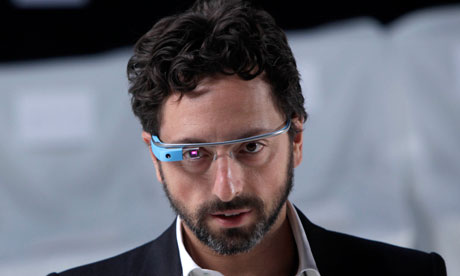
If Sergey Brin didn't exist, it might be beyond the wit of anyone to invent him. He turns 40 on the 21st of this month, and can now add his role as the funder of the new €250,000 (£216,000) "test-tube burger" to a host of other wild science-fiction ideas that are turning into fact - including investing in asteroid mining, personal genome analysis and electric cars.
And that's before you mention his role as the billionaire co-founder (with university friend Larry Page) of internet search giant Google, where he's also helped make the phone software Android one of the planet's most-used operating systems in just five years.
The triumvirate that runs Google - chief executive Page, executive chairman Eric Schmidt, and Brin - divides its roles quite clearly. Schmidt is the smooth diplomat, as familiar with Davos and No10 Downing Street as the "Googleplex" in California. Page, who turned 40 in March, is the hard-edged businessman. Brin, meanwhile, drives the "moonshots" – the projects that sound outlandish until they happen. Thus Brin has made self-driving cars a reality in a number of American states, and introduced the idea that wearing glasses that are always connected to a computer – "Google Glass" – isn't necessarily a sign of utter geekiness. (It has a little way to go on this, though, and Brin's comments in February that using asmartphone is "emasculating" – while the Google Glass on his face made him look vaguely like a lost space pirate – wasn't his finest hour.)
His excursions into new territories haven't been without personal cost. In September 2008, he revealed that his genome sequencing indicated he had a "markedly higher" risk of developing Parkinson's Disease. (He has been funding research to find a cure, so far putting in $132m.)
What next? Brin has shown interest in power generation, particularly renewables; in 2010 Google invested in an offshore wind-power development in the US. He's also an investor in Tesla Motors, the US electric car startup. So perhaps he will next turn up in some utterly unexpected little startup developing something using zero-point energy(a wrinkle of quantum mechanics).
Where does his spiralling imagination come from? His parents – father a maths professor, mother a researcher at the US space agency Nasa – are the obvious answer. They emigrated from Russia when Brin was six; his father claims they faced anti-Semitism, and Brin has ever since been keenly alert, and opposed, to government oppression in all its forms. He and Page met at Stanford University, where Page was working on the question of indexing and ranking the web, while Brin thought about how to make the best use of data. The collaboration produced a web phenomenon that now straddles the world.
Brin is a freewheeling type, quite literally. Ken Auletta describes in his book "Googled" how he would often turn up for meetings with powerful visiting executives slightly late, out of breath and wearing rollerblades. In his memoir "I'm Feeling Lucky", Doug Edwards, one of Google's earliest employees, describes Page as having "awkward moves and self-conscious grins" while Brin is "more fluid, athletic, acrobatic. Bouncy, even".
For someone whose mind usually races ahead of everyone else's, performing a sort of mental parkour, it's fitting that Brin should prefer wheels to shoes. The only question is whether the rest of the world can keep up with his vision
No comments:
Post a Comment